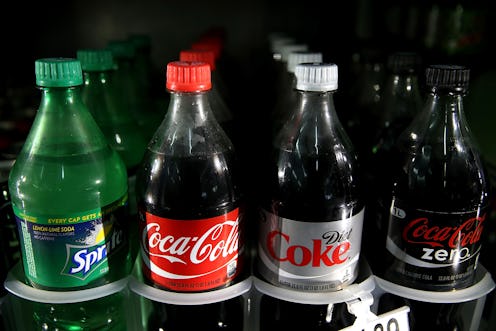
In case you needed another reason to swear off soda for good, here’s one for you: According to a new study from the University of Southern California, Coke, Sprite, and other soft drinks aren't just bad for your body — soda is bad for your brain, too. Really, really bad for it — especially for teenagers.
According to CBC News, researchers made beverages with sugar concentrations on par with those in commonly consumed sodas available to rats on a daily basis. Then, after 30 days, they tested the rats on their cognitive functions by — what else? — running them through mazes. Although the adult rats found their way through the mazes just fine, the adolescent rats had some trouble: They had difficulty navigating their environment, indicating issues with spatial learning; additionally, a closer look at their brains also revealed inflammation in the hippocampus, the part of the brain that controls a lot of our learning and memory functions. Said lead author Dr. Scott Kanoski, “It’s no secret that refined carbohydrates, particularly when consumed in soft drinks and other beverages, can lead to metabolic disturbances.” He continued, “However, our findings reveal that consuming sugar-sweetened drinks is also interfering with our brain’s ability to function normally and remember critical information about our environment, at least when consumed in excess before adulthood.”
Obviously this does not bode well for the teens of the world. It’s worth noting that 63 percent of Americans — almost two thirds of the population — reported in a recent Gallup poll that they actively avoid drinking soda, so at least there’s that; the problem is, though, that the poll (like all polls of its type) only survey adults age 18 or older. By the time most teens who regularly drink soda get to a point where they actually care about what goes into their systems, the damage has already been done.
It’s possible that you can improve your cognitive abilities through what’s called “brain training,” but I wouldn’t count on it; in 2013, a bunch of scientists got together in Europe to see if those little brain games actually work, and the conclusion they came to is that they mostly don't. According to the New Yorker, “the games may yield improvements in the narrow task being trained, but this does not transfer to broader skills like the ability to read or do arithmetic, or to other measures of intelligence.”
Maybe it’s time for another “This Is Your Brain On…” PSA?
Images: Getty Images; Reaction Gif Collection/Tumblr